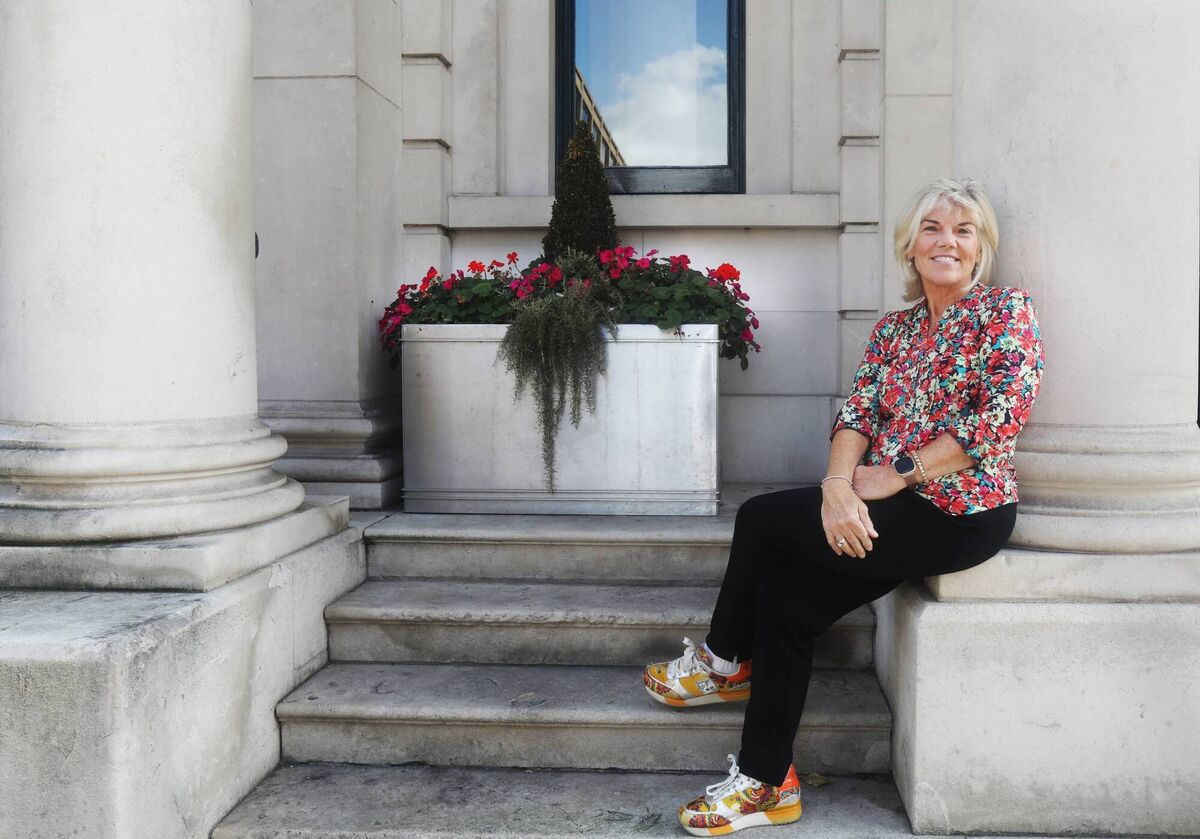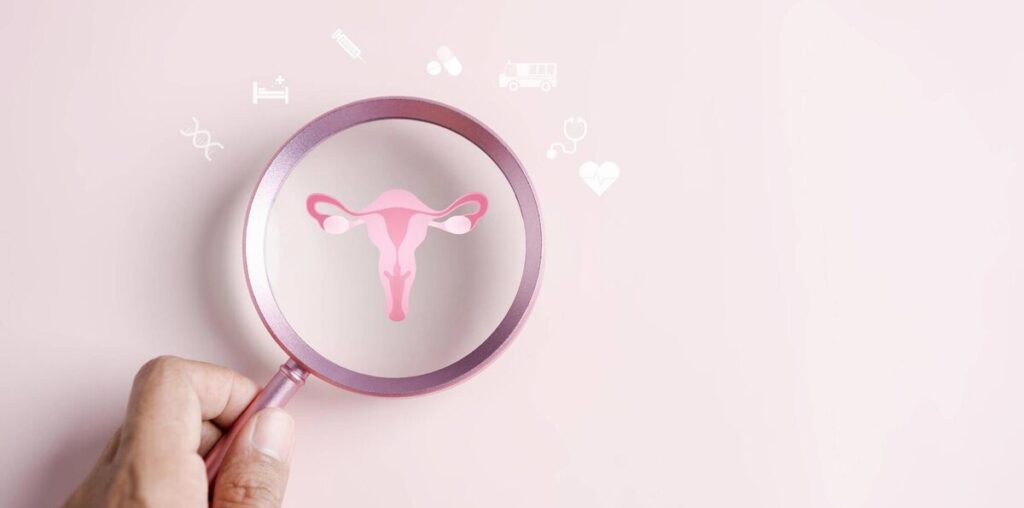On October 1, the Government announced it would provide hormone replacement therapy (HRT) free of charge to all menopausal women starting in the new year.
“It was a great day for the women of Ireland and their families and friends,” says Laura Dowling, the pharmacist known as @fabulouspharmacist, who has built an online following for her work explaining women’s health issues. “For it’s not only women who are impacted by menopause.
Their husbands, children, friends and colleagues are too. Free HRT will make their lives a little easier.”

The budgetary announcement reflects a new level of Government support for women who struggle during this hormonal change. When Green Party senator Pauline O’Reilly tabled a motion last year to make HRT free of charge, as it is in countries like Scotland and Wales, Health Minister Stephen Donnelly had no objection.
“The stigma that has been associated with menopause for far too long is now being consigned to history here in Ireland,” says Donnelly.
“Many initiatives played a part in this societal change, including Government awareness campaigns, the education and training of clinicians, and investment in services like specialist menopause clinics.
“But we must do more and that’s why in Budget 2025, I allocated €20m to provide free HRT products to better support women by removing cost as a barrier to care. From January next, where HRT has been deemed clinically appropriate and prescribed to a woman by a healthcare provider, the cost will be paid for by the State.”
This announcement has been welcomed as a positive development in women’s health. The National Women’s Council (NWC) hails it as “a game-changer”.
“It’s one of several initiatives rolled out in recent years recognising the reality of women’s reproductive health needs,” says Doireann Crossan, NWC’s women’s health coordinator. “Menopause can come with a range of debilitating symptoms, and free HRT will mean more women have the choice to try various medications to seek relief from these symptoms, potentially improving their physical and emotional wellbeing and overall quality of life.”
Their finances will also benefit. Most women who are prescribed HRT take it for two to five years, and currently, those without a medical card face prescription costs of between €30 and €70 a month. The free scheme could save them up to €840 a year.
“It will reduce financial stress and empower more women to make informed decisions about their health,” says Crossan.
Women’s health specialists also praise this new initiative. Dr Caoimhe Hartley, founder of the Menopause Health Clinic in Dublin and clinical lead of the Complex Menopause Clinic at the Rotunda Hospital, believes it will make accessing care easier.
“It will expand women’s options and remove barriers,” she says.

Dr Deirdre Lundy, head of the Complex Menopause Clinic at the National Maternity Hospital, believes it could help transform the lives of women suffering from menopausal symptoms.
“Some 20% of women have little to no symptoms of menopause,” she says. “But the other 80% experience a wide variety, ranging from hot flushes and night sweats to joint aches and pains, low mood, anxiety, brain fog, bladder symptoms and more.”
HRT is effective at treating most of these symptoms.
Lundy says: “Menopausal symptoms are caused by fluctuating or falling levels of the ovarian hormones oestrogen, progestogen and testosterone, and HRT involves taking a combination of one, two or all three to balance those hormone levels.”
HRT can have further protective effects beyond treating the symptoms of menopause.
“Oestrogen taken as part of HRT can be beneficial for bone health, reducing the bone density loss associated with menopause and the risk of developing osteoporosis,” says Hartley.
“Women who start HRT within 10 years of their final period and under the age of 60 may also have a reduction in their long-term cardiovascular risk. And many find that their sleep, mood and ability to exercise improves with HRT, which also benefits their long-term health.”
These endorsements of HRT stand in sharp contrast to previous negative news stories dating from the early 2000s. Back then, a major American study known as the Women’s Health Initiative reported that HRT users had a higher risk of breast cancer. Doctors worldwide soon stopped prescribing it to their menopausal patients.
That study has since been discredited for two reasons. One is that the women who participated in it started HRT at the average age of 63, far older than women generally begin. The other is that they were prescribed a synthetic form of HRT rather than the body-identical hormones women take today.
However, it took years for the confusion to clear. It was only when the British National Institute for Health and Care Excellence published its menopause guidelines in 2015, clarifying that hormones had a protective effect on women’s health, that HRT began to be widely prescribed again.
In 2021, Sallyanne Brady wrote a letter to RTÉ’s Liveline, describing the ‘living hell’ she experienced before starting HRT. It kickstarted a nationwide conversation about menopause and the potentially transformative effects of HRT.
Experts highlight potential problems with the rollout of free HRT. Prescribing varies depending on a woman’s hormonal profile, which makes it complicated. Lundy says this means the initiative will require careful planning:
“Everyone on HRT needs oestrogen but the dosage varies and so does the method of delivery. Will it be tablets, sprays, gels or patches? Then there’s progestogen. Will the initiative cover all brands and dosages and the cost of purchasing and fitting the Mirena coil, a popular HRT progestogen option? And what if testosterone is needed? The only testosterones available in Ireland are designed for men. Will the government pay for female patients to use them?”
The Irish Pharmacy Union (IPU) takes a similar stance.
“The prescribing of HRT must be tailored to individual women’s needs, so flexibility within the Government’s funding structures is essential to ensure that current treatment regimens remain accessible,” it said in a statement to The Irish Examiner.
Lundy points to issues with government-funded schemes in the past. For example, the drugs payment scheme, which ensures that families pay a maximum of €80 per month for approved medicines, only allows for a single canister of oestrogen every month.
“Yet almost all patients need at least two,” she says. “Following a campaign, this was increased to two canisters a month in September, and we’re hoping it will increase further.”
Hartley hopes that a woman’s age won’t determine whether she qualifies for free HRT: “I’d be very disappointed to see younger women who experience premature ovarian insufficiency excluded from this scheme.”
The average age of menopause in Ireland is 51, but one in 100 women experiences it before 40. This is usually due to a genetic issue or side effects of cancer treatment.
“These women need HRT and usually at much higher doses than their older counterparts,” says Lundy.
The IPU identifies another possible pitfall: The ongoing challenges with the supply of HRT medications in recent years. Dowling refers to these shortages as “elephant in the room”.
“Even now, there are shortages of HRT patches,” she says. “It can take trial and error for women to find the formula of HRT that works for them, and then to be told it’s not available is very upsetting. Making HRT free will only encourage more women to try it, driving up demand. But if we can’t supply the women who are currently on it, how are we going to be able to cater for more? The Government and all relevant stakeholders must come together to fix this because there will be serious problems if they don’t.”
Not all women want, need or can take HRT.
“Many women don’t experience menopausal symptoms,” says Hartley. “Others have symptoms they can manage. And then there are those who cannot take HRT due to health issues.”
Other interventions are available for the latter group. Cognitive behavioural therapy can alleviate mood issues, hot flushes, and night sweats. So can new non-hormonal medicines like Veozah.
While women need to know about the benefits of HRT, they should also be told that they are likely to need more supports to get through this time of hormonal upheaval.
The NWC would like to see additional initiatives introduced, including expanding the existing six specialist menopause clinics and addressing the specific needs of marginalised groups such as Traveller, Roma, migrant and disabled women who often face discrimination when trying to access reproductive health services.
Workplace supports are also necessary. “These could include flexible work arrangements, menopause policies and awareness training to ensure workplaces understand and accommodate women’s health needs,” says Crossan.
Dowling reminds women to make time for “the unsexy things like diet, exercise, and sleep”.
“They are really important and exercise is probably the most important of all,” she says. “Strength and cardiovascular training help with every aspect of our health, from our bones, muscles and joints to brain function. So get up and go for a walk or a run. Do 20 minutes on the dumbbells. You might be busy but exercise should be non-negotiable. It makes us feel better and improves our long-term health in the process.”

The average age of menopause in Ireland is 51. At that stage, a woman will have gone 12 consecutive months without having a period. However, she is likely to have started experiencing menopausal symptoms in the years before then.
Perimenopause is the name given to the time in a woman’s life when levels of oestrogen, progestogen, and testosterone produced by the ovaries start declining. It usually begins in a woman’s mid-40s, and symptoms range from hot flushes and night sweats to disrupted sleep, brain fog and painful sex.
Hormone replacement therapy (HRT) is a catch-all term for hormones that can be prescribed to treat these symptoms.
- All women who are prescribed HRT take oestrogen. It’s critical to addressing most menopausal symptoms. Oestrogen comes as a tablet, spray, gel, or patch.
- Women who still have a uterus (ie women who haven’t entered menopause as a result of a hysterectomy) have to take progestogen along with oestrogen. This combination protects the lining of the womb from developing abnormal cells, which could lead to uterine cancer.
- Progestogen may be administered via an intrauterine device, also known as a coil, as a tablet taken orally or through a patch.
- Testosterone is prescribed far less frequently because not every woman benefits from it. At present, the only indication for prescribing it is to improve low libido. It is usually administered as a cream or gel.
- Women can also benefit from applying localised oestrogen in the form of a cream, gel, or pessary directly to vaginal tissue. It can help to treat vaginal dryness, irritation, and pain and has been shown to reduce the risk of recurrent UTI infections. It is not strictly regarded as HRT, as its impact isn’t felt in any other body part. Its effect is strictly limited to the vulval and vaginal areas.


